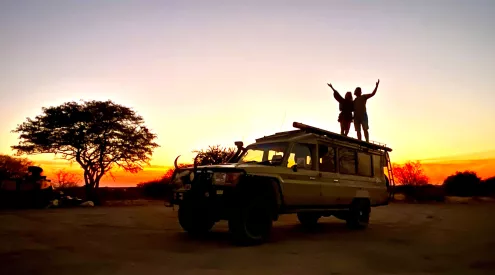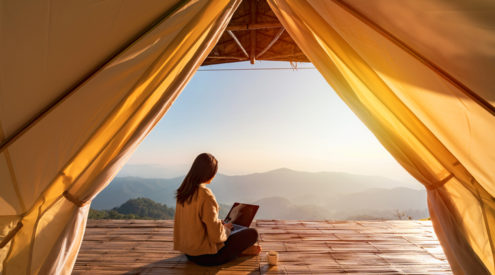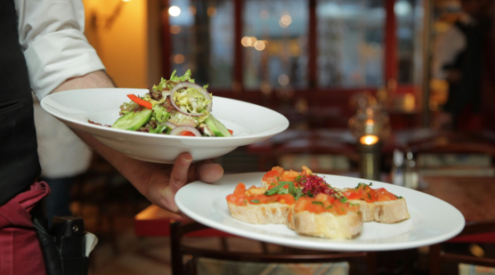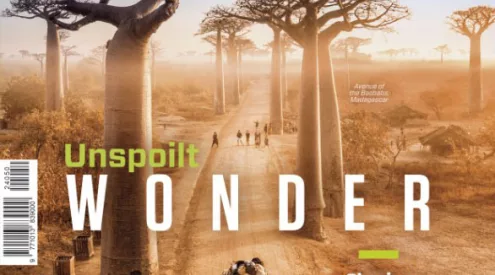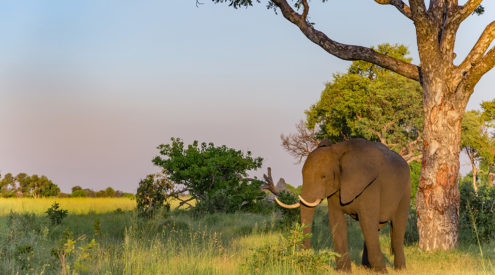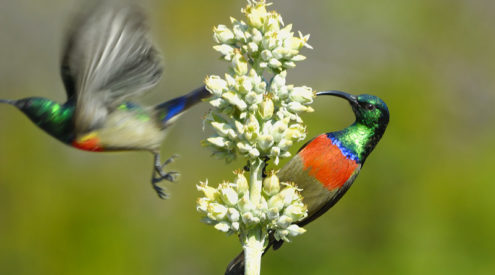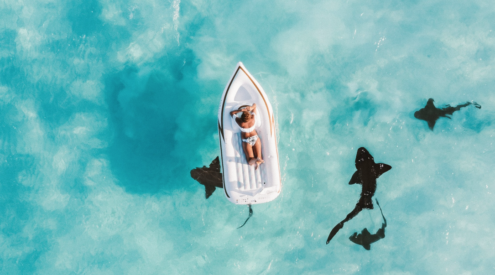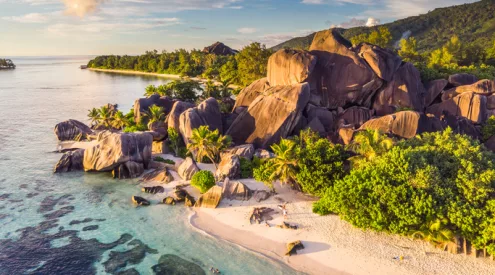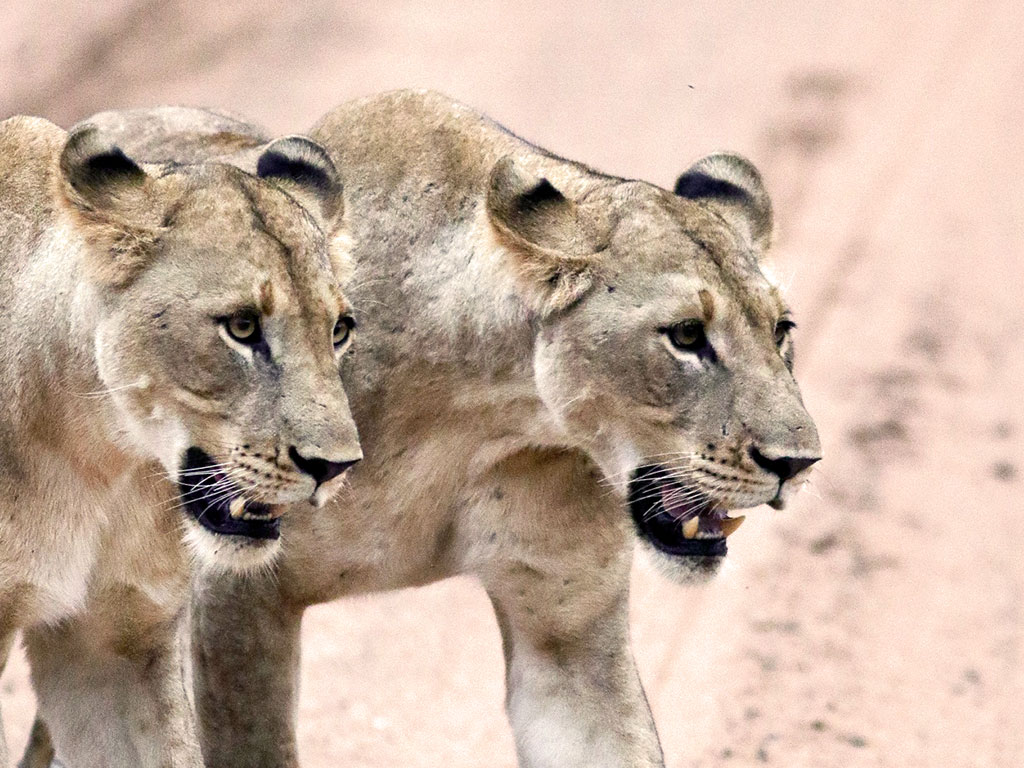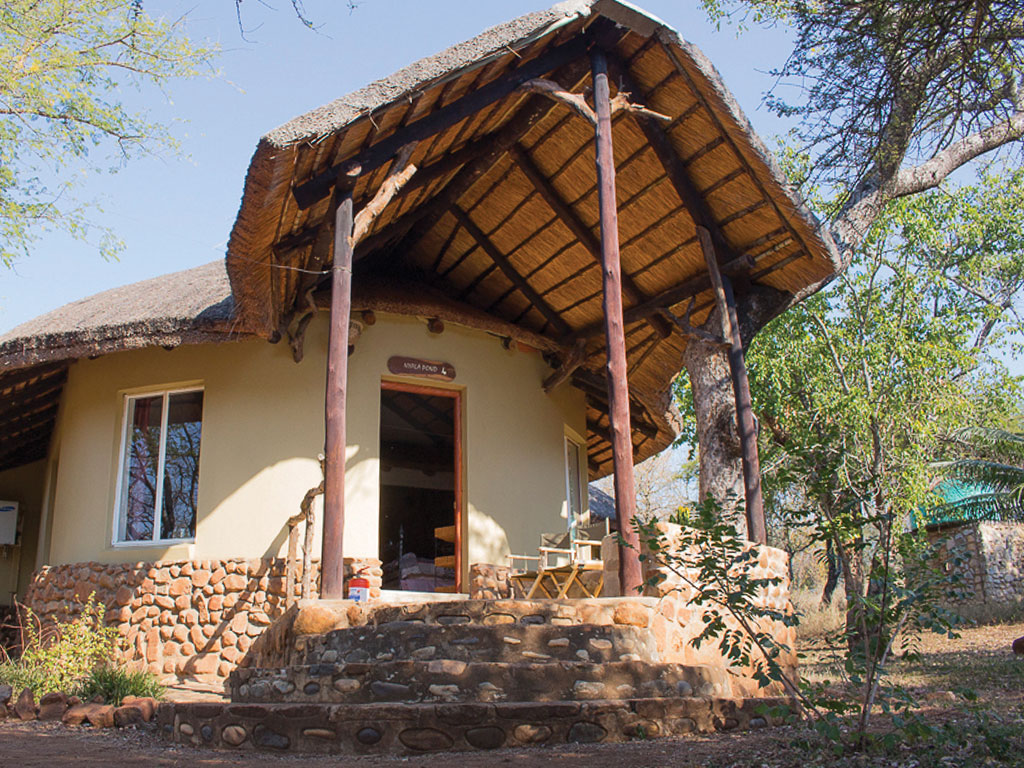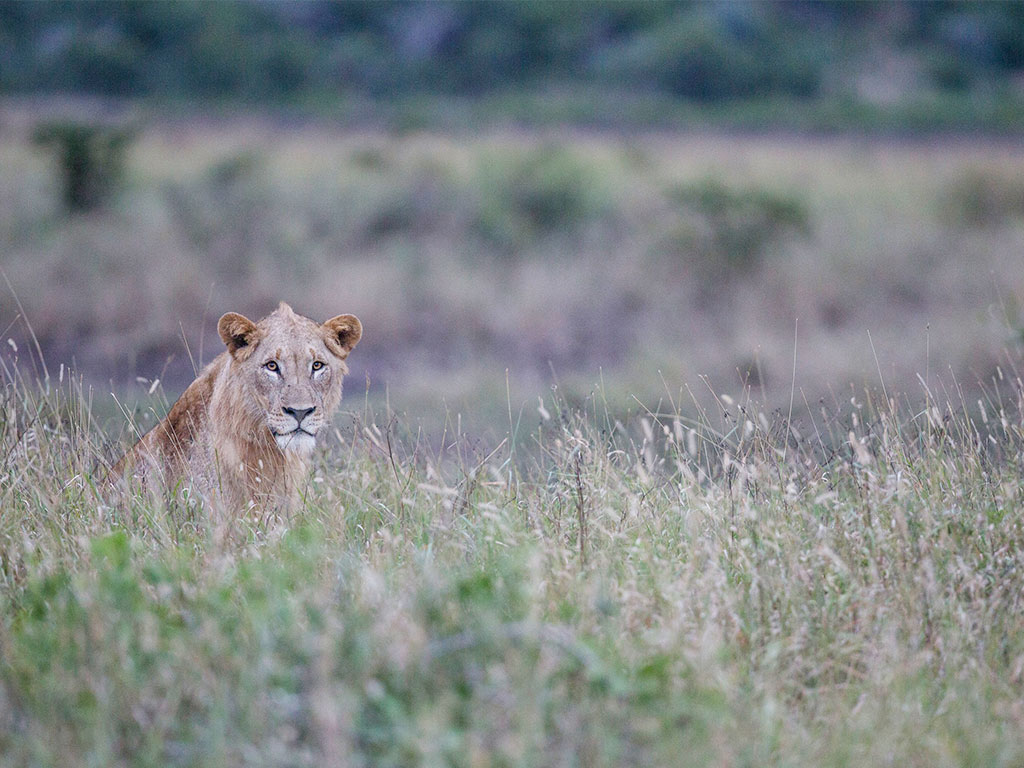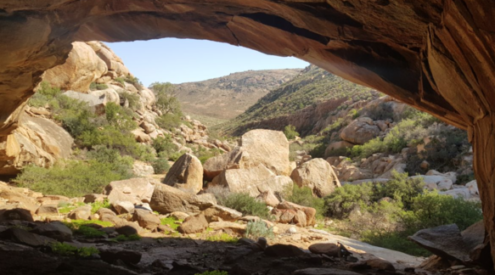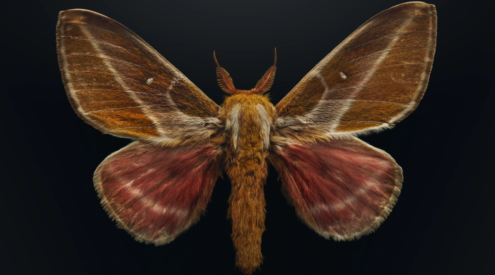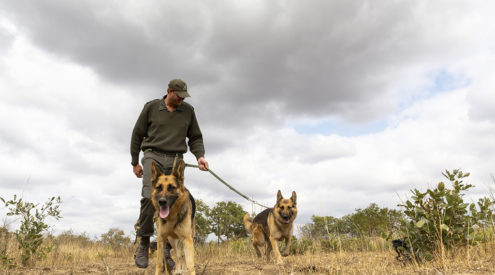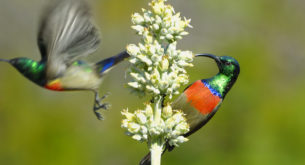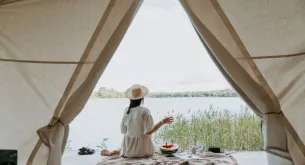As you read this, three lions and four cubs are exploring their new home in KZN. Here’s why this is great news.
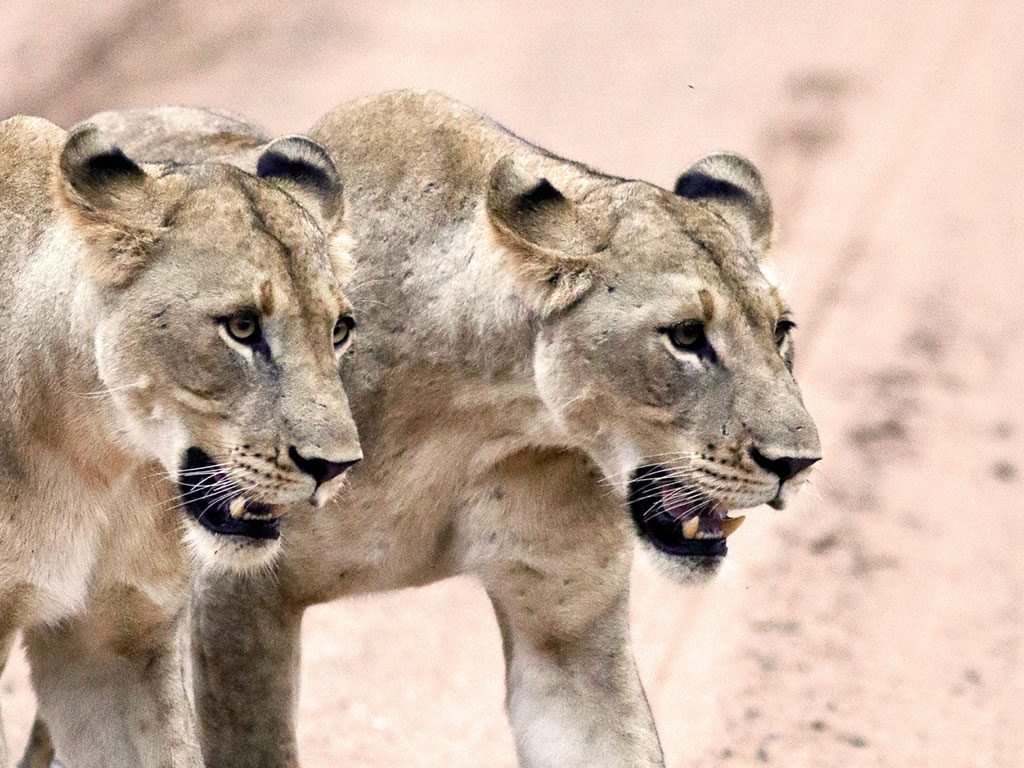
New beginnings for a trio of lions who used to call Phinda home. Photo by Howard Clelland.
In May last year, a male and two female lions were transferred – asleep, on the back of vet Dr Mike Toft’s special trailer – from Phinda to Somkhanda Game Reserve in northern KZN, which is owned and run by the local Gumbi community. The trio first spent two months acclimatising in a boma, and have since stretched their legs in the 12000-hectare reserve.
‘We feel privileged that the reserve is now a Big Five reserve – our dream is now a reality,’ says Nathi Gumbi, a key player in this community that, after successful process of land claims in 1998, turned what were cattle and game farms into a conservation success.
The lions are the first in the area in 100 years. This means that biodiversity and ecological balance in the reserve is now restored. But the transfer is also part of a lion conservation strategy that aims to expand their range and genetic pool.
Lions were reintroduced at Phinda in 1992, and they’ve thrived to the extent that the numbers often exceed the capacity of the reserve. Finding a place to translocate them to is the tricky part, as habitat loss is one of the greatest perils facing our planet’s wildlife.
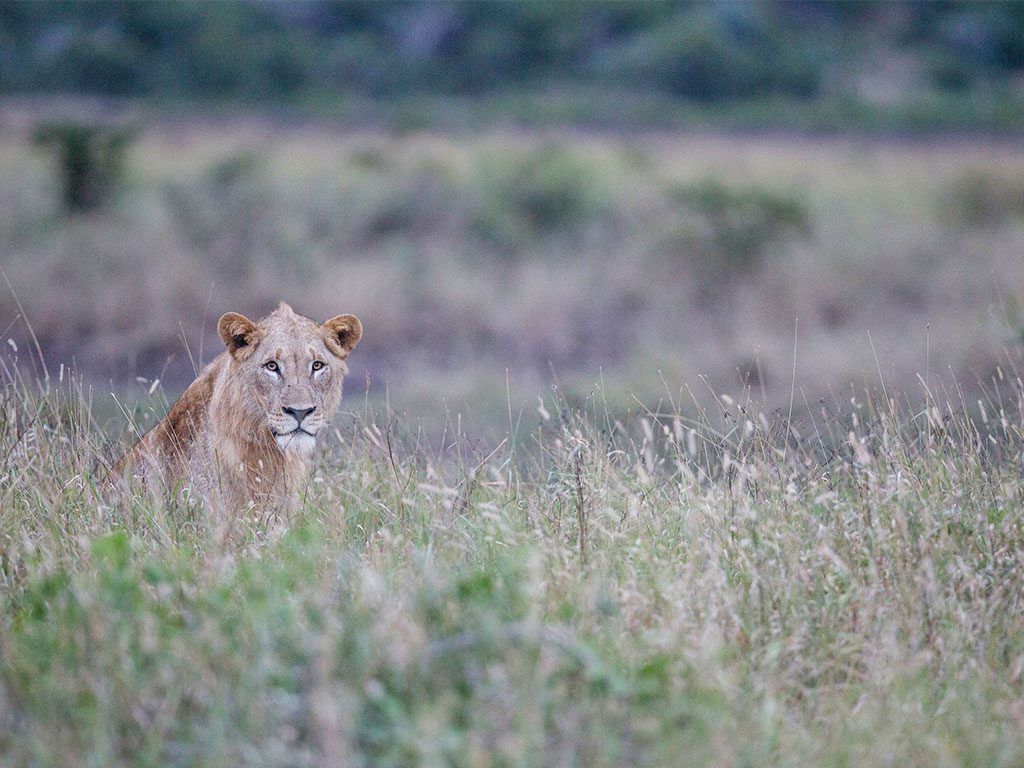
Every day in South Africa at least two to three captive bred or tame lions are being killed in canned hunts. And hundreds more are slaughtered annually for the lion bone trade. The Blood Lions story is a compelling call to action to have these practices stopped.
It’s no surprise that one of the people behind this initiative was also a producer on Blood Lions, the recent documentary that exposed the canned- hunting and captive-breeding industry. Dr Andrew Venter, CEO of Wildlands, has been involved with Somkhanda since 2013, helping to upgrade infrastructure and train local people in hospitality and reserve management.
‘There is no way captive-bred lions could ever have been used in an exercise like this as they have no conservation value,’ says Ian Michler, who was also involved in Blood Lions. ‘This is about expanding habitat using wild lions, and the project being managed by the recognised conservation community.’
Somkhanda’s credentials are golden – it has also been involved in the Black Rhino Range Expansion Project, so doing the same for lions is just part of a day’s work. The reserve’s ecotourism approach is also laudable – here visitors are encouraged to learn and contribute. Guests are involved in gathering data on game drives and bush walks, they can help with cattle dipping in neighbouring villages, or sign up for a wildlife conservation experience that includes helping to dehorn rhinos and replace their tracking collars.
Also read: Shadowing rhino rangers: three days on the front line.
Back to the lions: ‘They’re bonding nicely and have been feeding well,’ David Gilroy, Wildlands Strategic Manager, told us.
‘We methodically introduced endangered species to the reserve over the past 10 years. Black Rhino were introduced through a partnership with Ezemvelo KZN Wildlife and WWF’s Black Rhino Range Expansion Project at the inception of the project. Since then White rhino, Wild dogs, buffalo, elephant and now lions have been reintroduced along with a host of plains game species to support the predators that now exist on the reserve. Somkhanda also employs a team of dedicated priority species monitors who spend their time tracking and monitoring their movements and physical condition of the lions on a daily basis.’
Now, four cubs have joined the pride. ‘These cubs are the first wild lions born on Somkhanda in the past 50 plus years since lions were persecuted and exterminated from the area.’
Go see the lions now!

Kudu Lodge is very affordable for South African travellers. Photo by Charlotte Cornwallis.
The reserve has 100 kilometres of 4X4 tracks which self-driving guests can use – they’ll need GPS, though, as there are no road signs in this park. It’s also one of the best-value safari experiences on offer in SA: R1035 per person for full-board at Kudu Lodge, including a game drive (accommodation only is just R400 per person, camping is R120 per person). africaninsight.co.za

